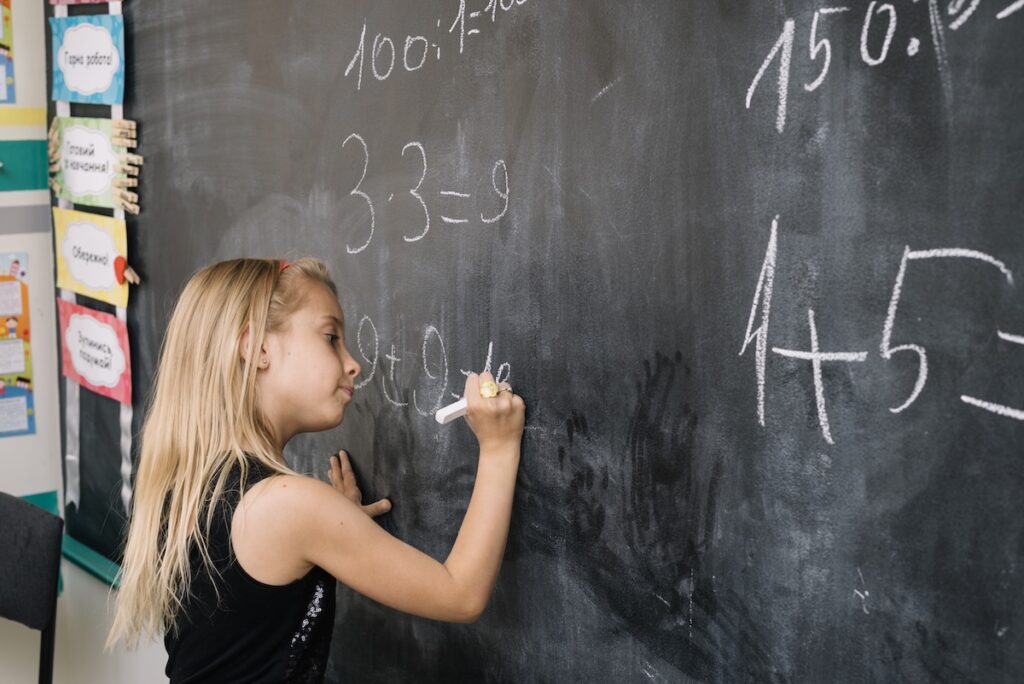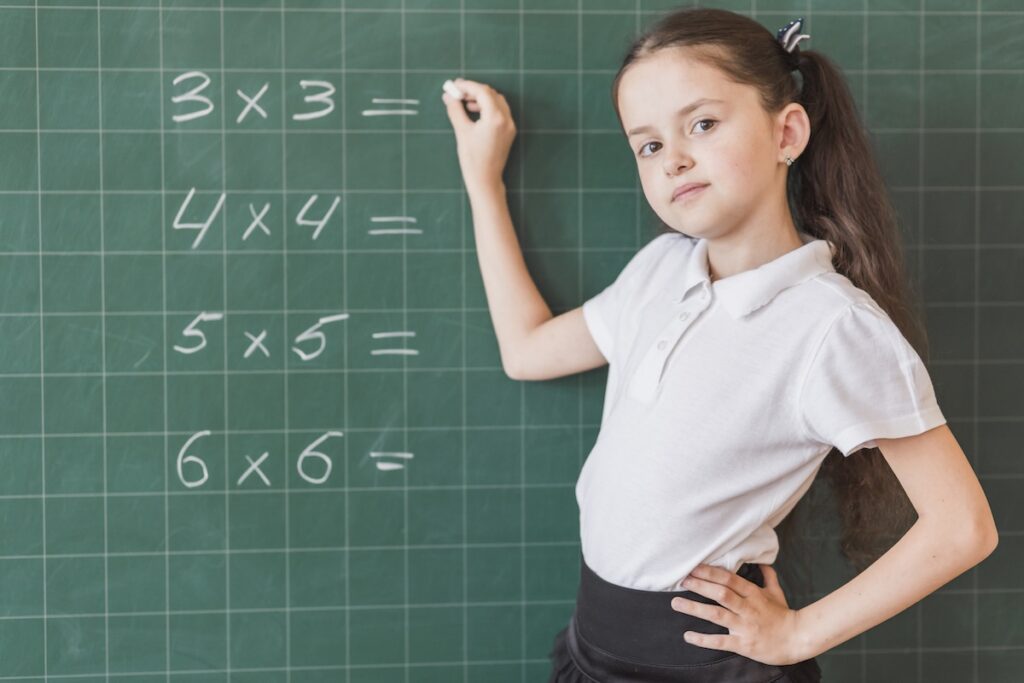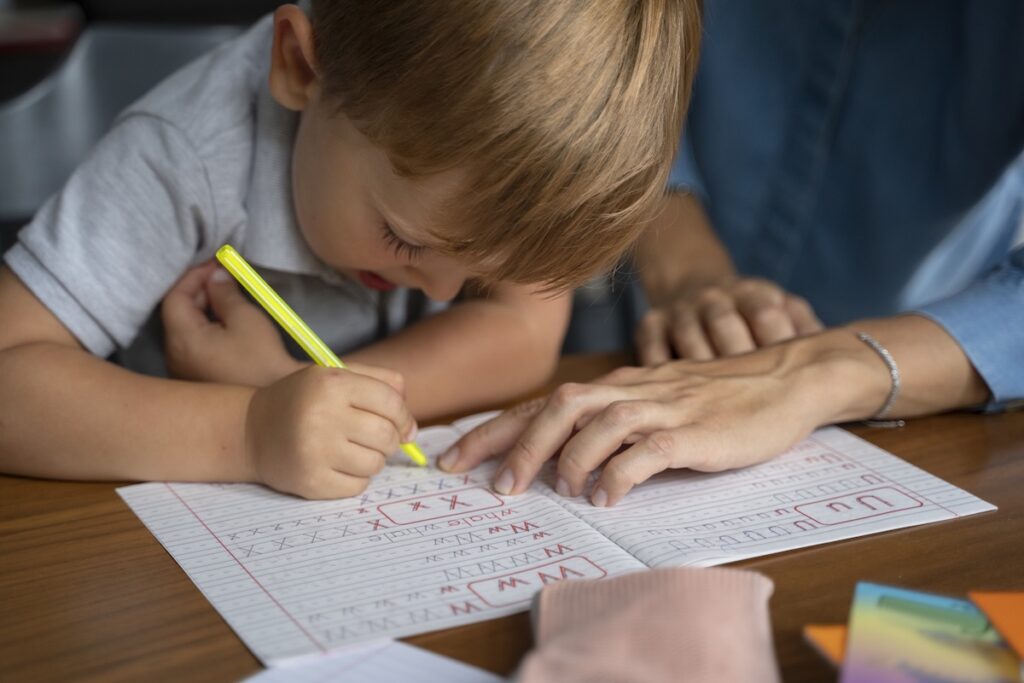Онлайн-школа » Блог
Блог

Кризис гуманитарных факультетов в университетах США
В университетах США наступил серьезный кризис гуманитарных наук. По всей стране закрывают или объединяют кафедры: Власти утверждают, что это не приносит денег. А значит, это

Правила дорожного движения для детей: как научить ребенка быть в безопасности на дороге
Каждый год по всему миру тысячи детей получают травмы или погибают в дорожно-транспортных происшествиях. Но есть и хорошая новость: большинство таких случаев можно предотвратить. Многие

Фонетика и фонология современного русского языка
Фонетика русского языка изучает, как мы произносим звуки и как они звучат. Она отвечает на вопросы: Фонология русского языка смотрит на звуки не как на

Американцы критикуют систему образования: 7 из 10 считают ее «не туда идущей»
Система образования в США движется в неправильном направлении. Так считают 7 из 10 жителей США. Причем недовольны люди всех возрастов, уровней дохода и даже политических

Изучение математики для детей по методике Петерсон: особенность и кому подходит
Многие родители замечают, что ребенку скучно на уроках математики. Или он не понимает предмет. Возможно, ему подойдет методика Людмилы Петерсон — известного российского педагога. Ее

Таблица умножения на русском языке: как объяснить ребенку
Для многих детей таблица умножения — это просто набор чисел и настоящая головоломка. Чаще всего трудности возникают не из-за отсутствия способностей, а из-за того, как

Как изменилась лексика русского языка за последние 100 лет
Если бы человек из 1920-х годов услышал, как мы говорим сегодня, он бы удивился. Многие слова тогда просто не существовали. А ведь для современного человека

Стандартизированные тесты снова в тренде: почему SAT растет в США
Еще несколько лет назад многие университеты США объявили, что стандартизированные тесты США больше не обязательны. Но сейчас все меняется. В 2025 году наблюдается четкий тренд.

Согласные и гласные буквы в русском языке: как объяснить ребенку просто
При знакомстве с русским алфавитом для детей родители или воспитатели часто сразу начинают рассказывать про «твёрдые и мягкие», «звонкие и глухие», «парные и непарные». И

Дни недели: как просто объяснить детям
Взрослым кажется очевидным: неделя состоит из семи дней, они идут строго по порядку, и каждый день имеет свое название. Но для ребенка это настоящая головоломка.

Поступление в колледжи США на максимуме за 10 лет: почему все больше студентов выбирают образование
Осенью 2025 года число студентов в США достигло 19,4 миллиона. Это самый высокий показатель за последние 10 лет. И все это на фоне заметных проблем

Русский язык и его влияние на развитие детей
Русский язык – не просто средство общения, а мощный инструмент формирования личности, логики и эмоционального интеллекта ребенка. Уже в дошкольном возрасте дети через речь учатся:

Русская разговорная речь для иностранцев — развитие речи в кратчайшие сроки
Многие, кто начинает изучать русский язык для иностранцев, сталкиваются с одной и той же проблемой. Они понимают тексты, знают грамматику, но не могут выстроить простое

Интонация в русском языке и как ее развить
Интонация – это неотъемлемая составляющая нашей речи. Она показывает, рады мы или злимся, задаём вопрос или просто что-то рассказываем. И даже отсутствие интонации говорит о

Тенденции высшего образования в США на 2026 год: что изменится и почему это важно
Последнее время стало временем глобальных перемен в американской системе образования. И это заметно всем. Но в чем именно заключаются эти перемены, и кто пострадал сильнее

Современный русский язык — какой он?
Русский язык – это не просто средство общения, а сложная, многогранная система, отражающая историю, культуру и мышление целых народов. Сегодня он переживает один из самых

Как объяснять правила ребенку на русском простыми словами
Многие родители сталкиваются с ситуацией: правило объяснено — а ребёнок всё равно пишет «жы» или путает «ться» и «тся». Проблема не в лени или нежелании

Что посмотреть иностранцу в России: главные места и впечатления
Россия — не просто страна. Это целый континент в границах одного государства. Здесь можно увидеть все. От арктических пустынь до субтропических побережий. От мегаполисов-миллионников до

Как отличается русский язык в странах СНГ
Русский язык — один из самых распространённых в постсоветском пространстве. Но в разных странах СНГ свои государственные языки. В некоторых странах — языки похожи на

Путешествие в Россию: какие фразы на русском нужно знать
Планируете поездку в Москву, Санкт-Петербург или в любой другой русский город? Даже в крупных городах знание английского не гарантирует беспроблемного общения. Особенно за пределами туристических

Развитие речи на занятиях по русскому языку как иностранному
Для многих учащихся ключевая цель в освоении русского языка – не просто выучить грамматику или пополнить словарный запас, а научиться говорить на нем в реальной

